Women’s Co-ops in Tanzania Flourish Under Industrious Mothers’ Direction
Women’s Cooperatives are often integral to the economic and social development of communities worldwide. Beyond providing income for members, they supply greatly needed socialization and training. Well-established co-ops can be transformational for the women who participate, and are the inspiration for the Reaching Children’s Potential (RCP) Women’s Co-op in the Ukwega Ward in Tanzania. Under the direction of local staff, groups of village mothers are empowering themselves and each other – in this grassroots, democratic form of industry to support their families. Read on to learn about their vision.
The History of Cooperatives in Tanzania
Cooperatives were established in Tanzania a century ago, in the 1920s. Following the Arusha Declaration in 1967, a major policy statement by Tanzanian President Nyerere, cooperatives became the main tool for building a spirit of self-reliance throughout the country. Although most policies of that action were abandoned after 1987, cooperatives survived. Since then, particularly in rural areas, they perform a valuable role in uniting people’s common economic and social needs, and remain a very relevant component of development. Cooperatives provide small producers with a form of collective organization, without which, they would be at a drastic disadvantage when trying to sell their products.
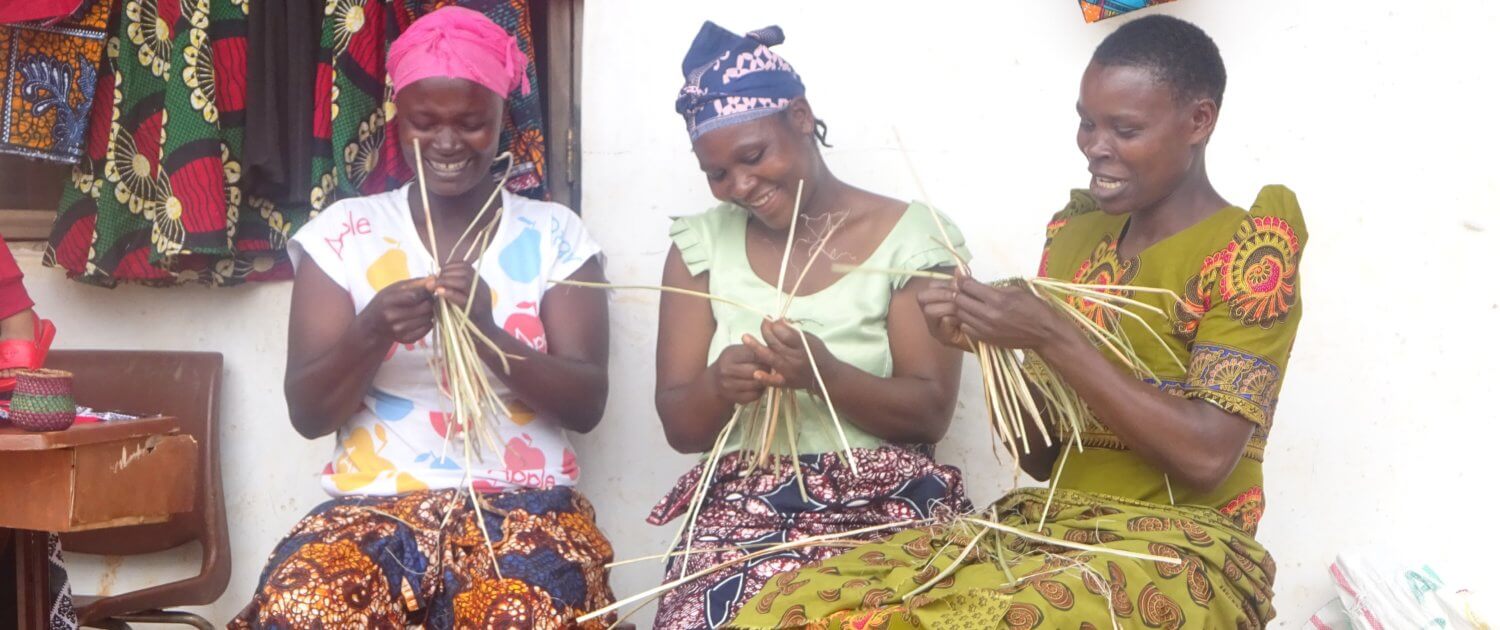
Cooperatives are regarded as a means to raise economic development for many societies in Tanzania. To achieve their goals, cooperatives must be commercially viable and for-profit, and able to survive and prosper in the marketplace. In contrast to other businesses, however, proceeds are available to be shared among all members, on a collective basis.
Before 2017, most cooperatives were agricultural in nature.The cooperative members were taught the modern practices of farming and livestock keeping, and members were allowed to buy shares that help them to earn income or loans from sponsoring partners. That model has expanded now to include crafts, textiles, and short-run manufacturing. And so, the economic opportunities for women have likewise expanded.
Women’s Cooperatives Gaining Ground
Anthropologist Brenda Rosenbaum writes that cooperatives can go far beyond simply providing an income for women members. Cooperatives have “empowered” women, “enhanced their dignity, and greatly improved their quality of life,” she claims. Dame Pauline Green, President of the International Cooperative Alliance, said in 2013, “Cooperative businesses have done so much to help women onto the ladder of economic activity. With that comes community respect, political legitimacy and influence.”
Cooperatives are based on values such as democracy, self-help, equality, equity, and solidarity – all elevating women through membership. Additionally, cooperatives promote principles such as voluntary membership, member education, democratic member control, member economic participation, and concern for the community, which places cooperatives in a unique position to promote gender equality and give voice. Coop News writes: “Women are being supported via member education to acquire confidence and skills for meaningful participation and, thanks to the democratic governance principle, are able to influence the cooperative’s affairs.”
However, despite these shared values, women suffer disproportionately low representation in cooperative membership worldwide. Therefore, cooperatives founded to create opportunities for women to actively participate as members and serve in leadership roles are especially valuable.
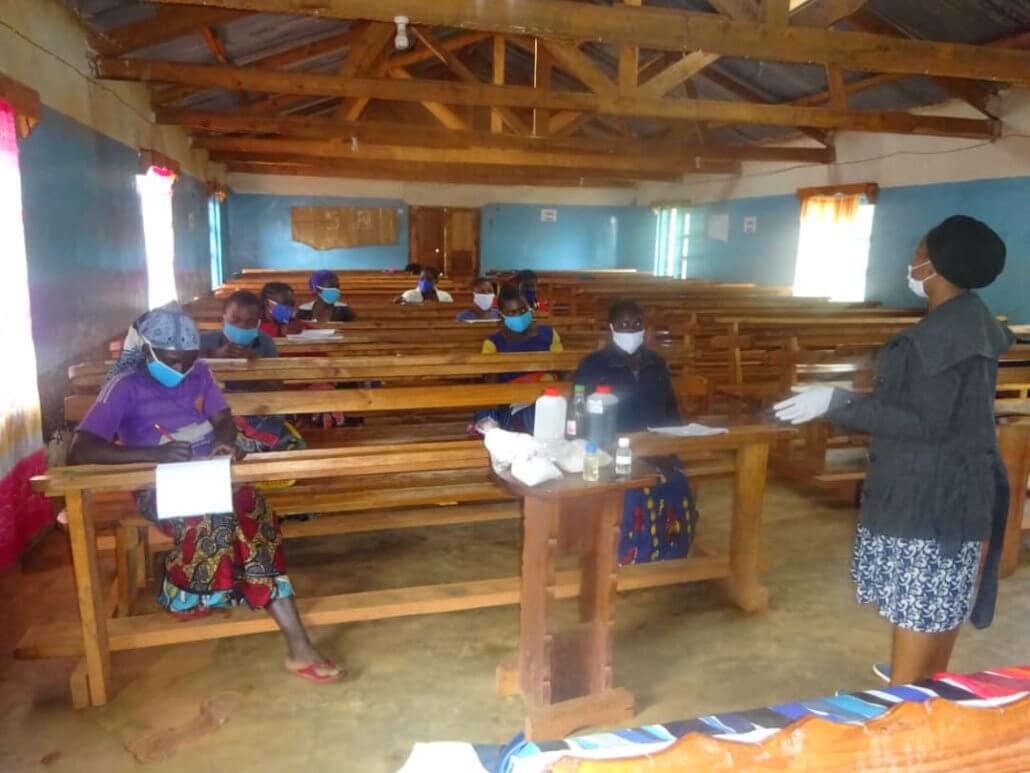
Protecting Women So Children Can Thrive
To help reduce poverty and incentivize economic, social, and cultural collaboration, Global Volunteers’ Reaching Children’s Potential Program initiated women’s entrepreneurial co-ops. The goal of these cooperatives is to enable mothers to learn different entrepreneurial skills and improve their standard of living – which directly benefits their children. The co-op members are required to contribute their time and expertise, but not any money. This way, the women are motivated to freely share and diversify their skills.
In October 2020, delivery of 150 tote bags crafted by the RCP women’s co-ops was made to Global Volunteers partner Rise Against Hunger for their Virtual Journey to Serve with Global Volunteers to Tanzania. The organization’s website describes the tote bags as “one-of-a-kind and sustainably sourced. It was something the five tailors in the co-ops were interested in doing as it would enable (them) to make a profit during a time when income generation has been limited.”
Since that time, the co-ops have acquired government registration, which provides resources such as training, loans and participation in district and regional conferences. The co-ops have been providing Global Volunteers with products for distribution in the U.S. and enlarging their product line to include kitchen supplies and raising chickens for egg production.
RCP mothers seeking meaningful self-employment are highly motivated to accept this opportunity. Husna Waziri, Tanzania Technology Manager, describes the challenge the co-ops are addressing. Not having an independent source of income “not only puts the women at high risk of relying on men to meet their basic needs, but also (exposes) some of the women, and especially girls, to an extremely high poverty level and high risk of contracting HIV and other STDs.” Husna sees the co-op project as a direct way to combat this double threat.
“Profits are invested directly into the project, empowering women to negotiate safe sex, decreasing their risk of HIV and STD infection, and thus decreasing the future prevalence of HIV.”
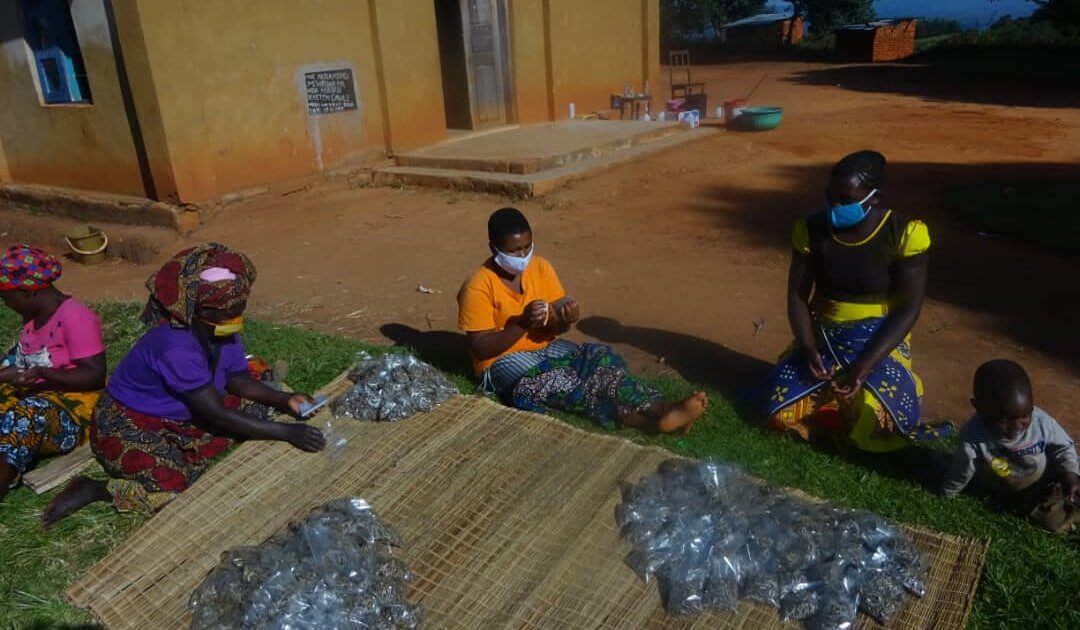
“This has not only put the women at high risk of relying on men to meet their basic needs, but also (exposes) some of the women, and especially girls, to an extremely high poverty level and high risk of contracting HIV and other STDs.”
– Husna Waziri, Tanzania Technology Manager and RCP Program Coordinator
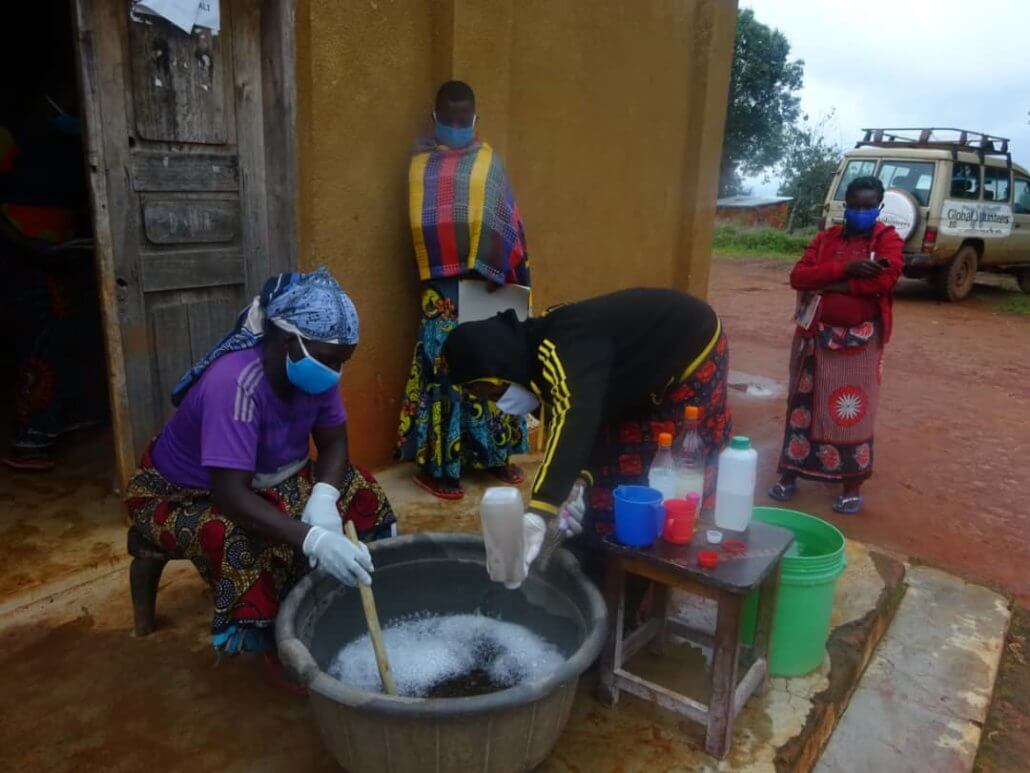
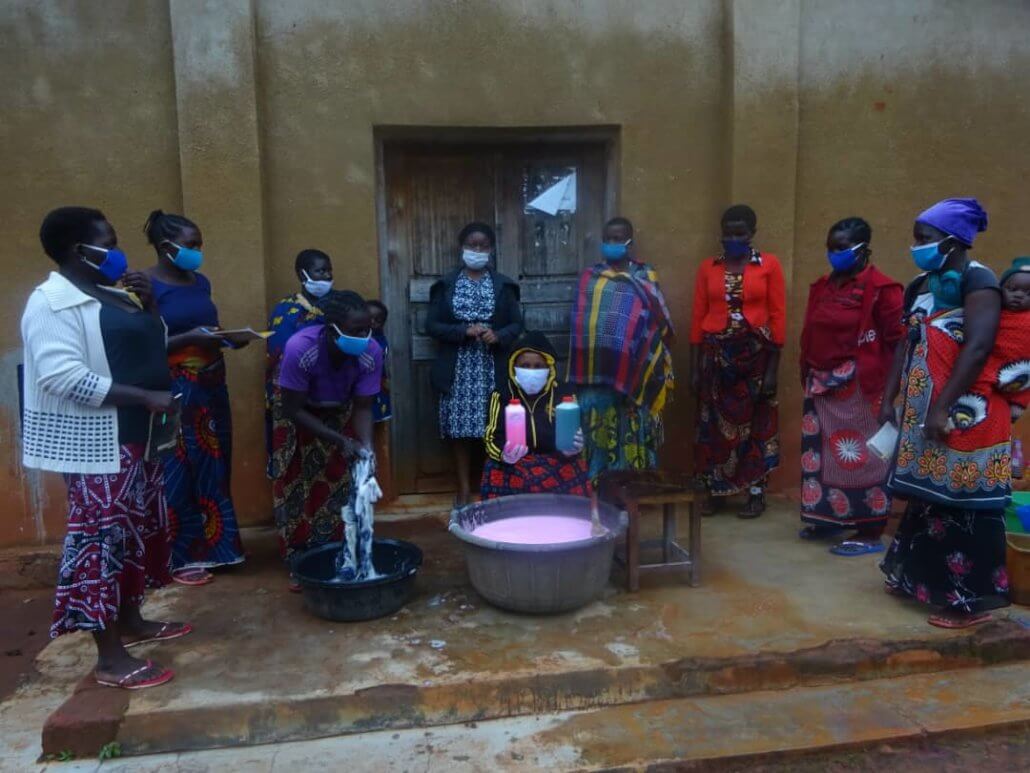
Cooperatives Grow in the Ukwega Ward
The six women’s cooperatives of the Ukwega Ward employ 53 members and have re-shaped mothers’ futures. Making this case, the mission statement of the Amani Co-op stating it exists to: “Promote an environment in which mothers and girls are cared for and supported, and to foment social support to facilitate a meaningful and decent life.” This structure is integral to the broader RCP goals – to eliminate stunting and enable children to reach their full human potential.
Upendo Women’s Cooperative
Upendo (“Love” in Swahili) was the first RCP co-op – formed in 2018, and operates from Ipalamwa and Lulindi with nine members. It produces baskets, protective face masks, and soap, and raises poultry. A chairwoman, secretary and project leader manage the group. The chairwoman and secretary supervise daily activities and the project leader is responsible for innovation of new ideas and skills in group projects.
Amani Women’s Cooperative
Amani (“Peace” in Swahili) in Makungu currently has eight members and focuses on basketry, soap making, tailoring, and hair dressing. The group has two leaders: a chairwoman and a secretary, who were selected among the members by vote.
This group got started in 2020 with a loan of 50,000 Tanzanian shillings from the Upendo Co-op from Ipalamwa and Lulindi. The Amani group started off by making 60 liters of multipurpose soap and soap for cleaning toilets as well as 50 face masks, which were sold to the Ipalamwa General Clinic and within the Makungu community. They were able to pay back the loan quickly. They have started producing dried seafood, and hope to make local fabrics (tie-dye batiks).
Mshikamano Women’s Cooperative
Mshikamano (“Solidarity” in Swahili) was founded in Mkalanga in 2020, and currently has ten members. It produces baskets, protective face masks and soap, and hopes to start producing local fabrics. The group voted in the chairperson and secretary, and formed a group constitution defining the criterion for membership, fines for being late or absent from group meetings, and the rights and responsibilities of all members.
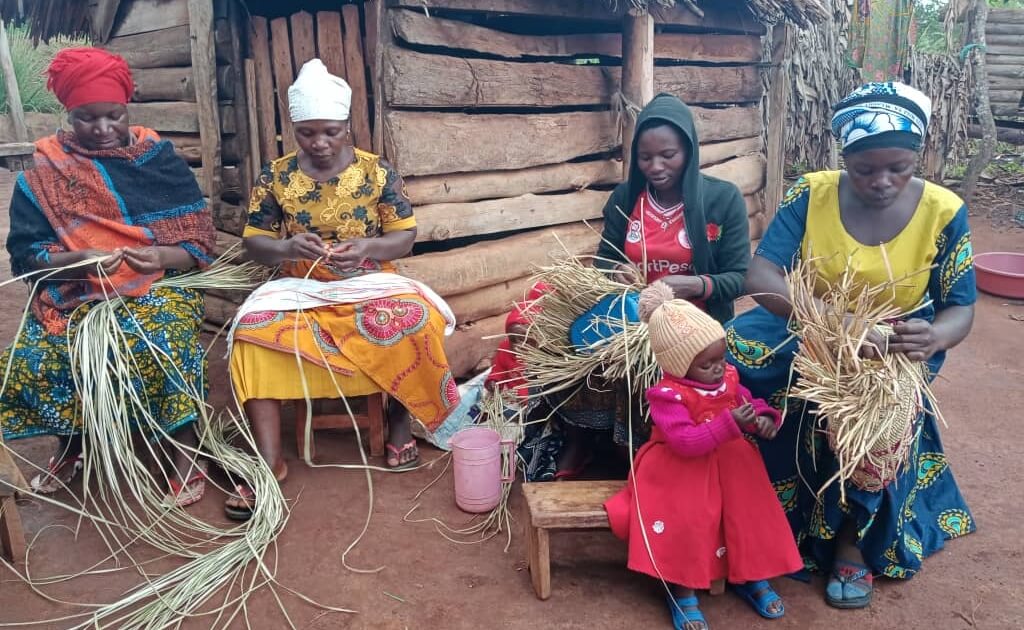
Mshikamano B Cooperative
This co-op, an outgrowth of the original co-op in Mkalanga, was founded in November 2022 and is focusing on basket-making. The ten members are hopeful that they can achieve the success of the original Mshikamano that gave birth to their group. They aspire to develop a market in the wider region of Iringa.
Tunaweza Women’s Cooperative
Tunaweza (“We can” in Swahili) of Ukwega Village currently has nine members, including a chairwoman, secretary, and treasurer, also formed in 2020, and is currently focusing its efforts on basketry. They also received a loan of 32,250 Tanzanian shillings from the Upendo group in order to start making baskets to sell in Ukwega and Iringa – the largest nearby city. They have also produced liquid soap, for the villages that are out of the market are of the other co-ops.
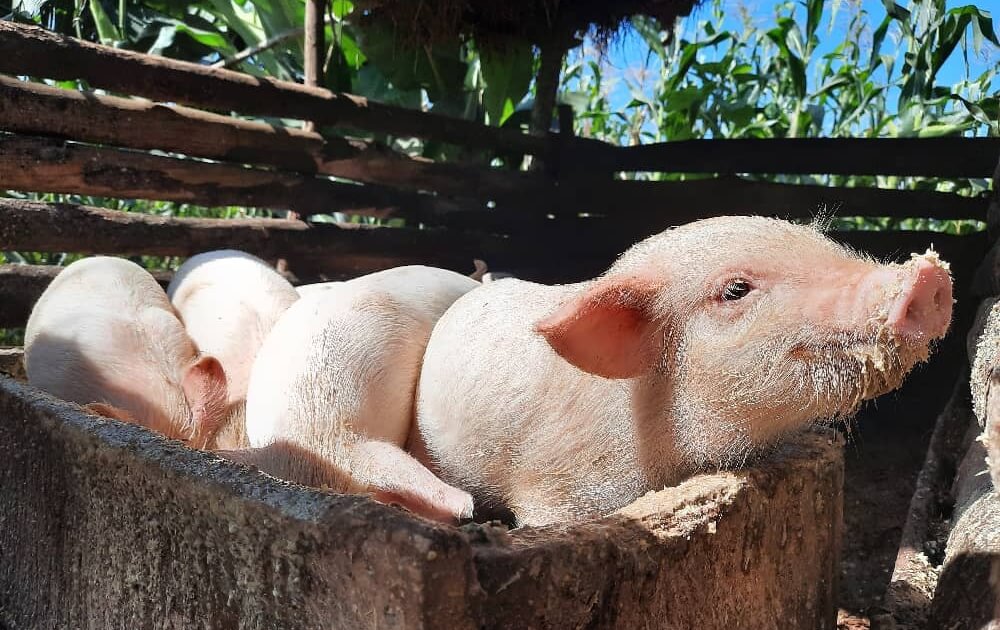
Inukeni Women’s Cooperative
Inukeni (“Lift up” in Swahili) is the spirit of the 13 women from Ipalamwa who started this cooperative in 2021. Receiving the seed money for their group from the other cooperatives, they specialize in pig keeping and producing tie-dye material to sell around the Ukwega Ward. Starting with two pigs, they sold the male pig feed after the female was impregnated to provide funds for the pregnant sow’s care. When the piglets are born, they will be raised and sold to local families when they reach the proper age.
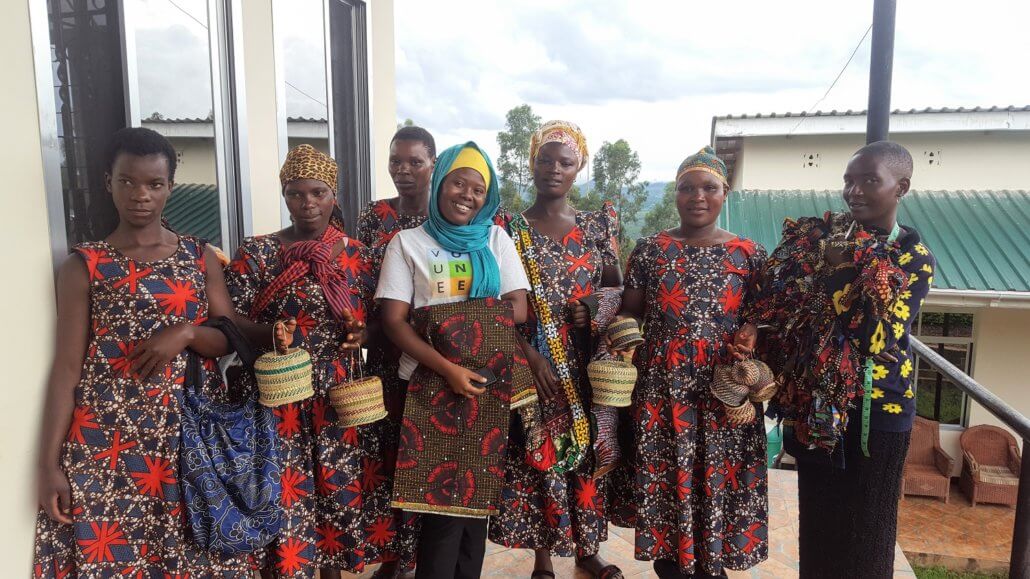
Women-Defined Objectives Sustain Success
In 2018, when Upendo Women’s Cooperative started, the members hoped to create employment for at least 20 unemployed mothers. They expected the income would decrease their dependency on handouts and demeaning or risky sexual transactions. The benefits would be greatly expanded through the additional training and mentoring provided by short-term volunteers. With this vision planted in their minds, they defined their objectives:
- To improve the economic welfare of members by employing them to run and support the co-op business project.
- To train mothers who have no opportunities to generate income so that they may successfully support their needs.
- To establish a business and use its profits to help support the activities of the co-op in service to the members and to produce more products.
- To make different products, such as baskets, to generate profit.
- To develop a sustainable co-op and increase membership.
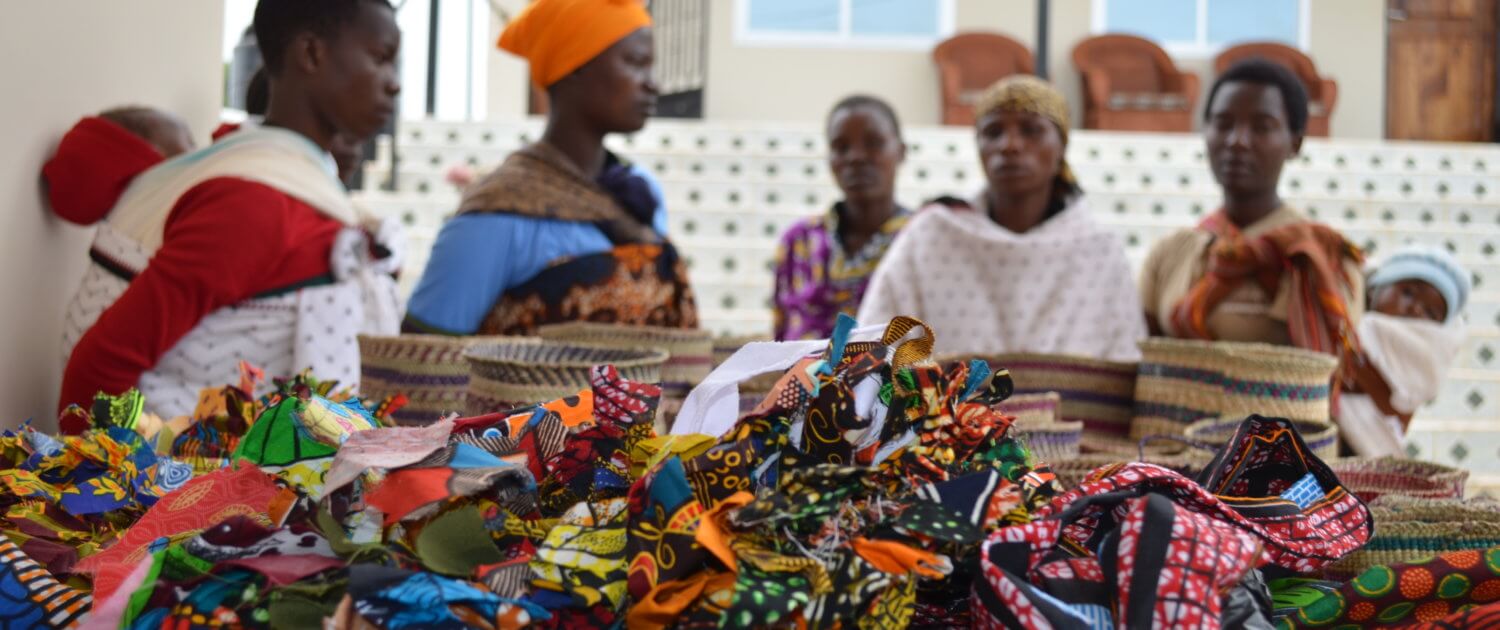
Women Members Claim Broad Benefits
When Devotha Nalbert joined the Amani co-op in Makungu earlier this year, she already had basketry skills, so she shared them with the co-op members. Devotha says that she has learned how to produce liquid soap and soap for cleaning toilets in the co-op, as well as how to start a small business. “I have learned a lot, including engaging in various economic activities and identifying different entrepreneurial opportunities,” Devotha asserts. “The co-op has helped me learn about selling seafood in the village, how to approach a client, and the importance of understanding your product and confidently advertising it.” Further, she says the benefits flow in both directions. “I share ideas, things that I never knew I could share and learn from other members in the co-op.”
Another co-op member, Fadhila Leonard Mwilafi, joined the Amani co-op in 2020 and had experience in tailoring – especially making dresses for women and girls. Fadhila comments, “The co-op is very helpful, and the skills we are learning are very useful because we can use them in our daily life. For example, I’m a tailor, and the training we received on how to accommodate customer behavior helped me in my business. Also, I have learned how to produce face masks. I’m now making masks for my co-op. After making a total of 85 face masks to be sold to the Ipalamwa General Clinic, I now have the funds to make eight masks for the nearby dispensary. With that, I will make a profit to continue working and selling.”
Fadhila continues: “I have seen my life completely change due to the skills I have gained in the co-op! My income, education, and socialization have improved and I found a new family in the Amani group. We have one goal – to succeed. Our motto is “Success does not come with sleep! Wake up!””
Before joining the Amani Co-op, Eliza Laban Mgina already was a weaver. But she says her skills (and outlook) have improved through the collaborative spirit of the group. “There is so much I have gained in this group. Nowadays I have no time to waste. I spend most of my time on co-op activities or with co-op members. The benefit I get is sharing ideas, things that I never knew I could share, and learning from other members.”
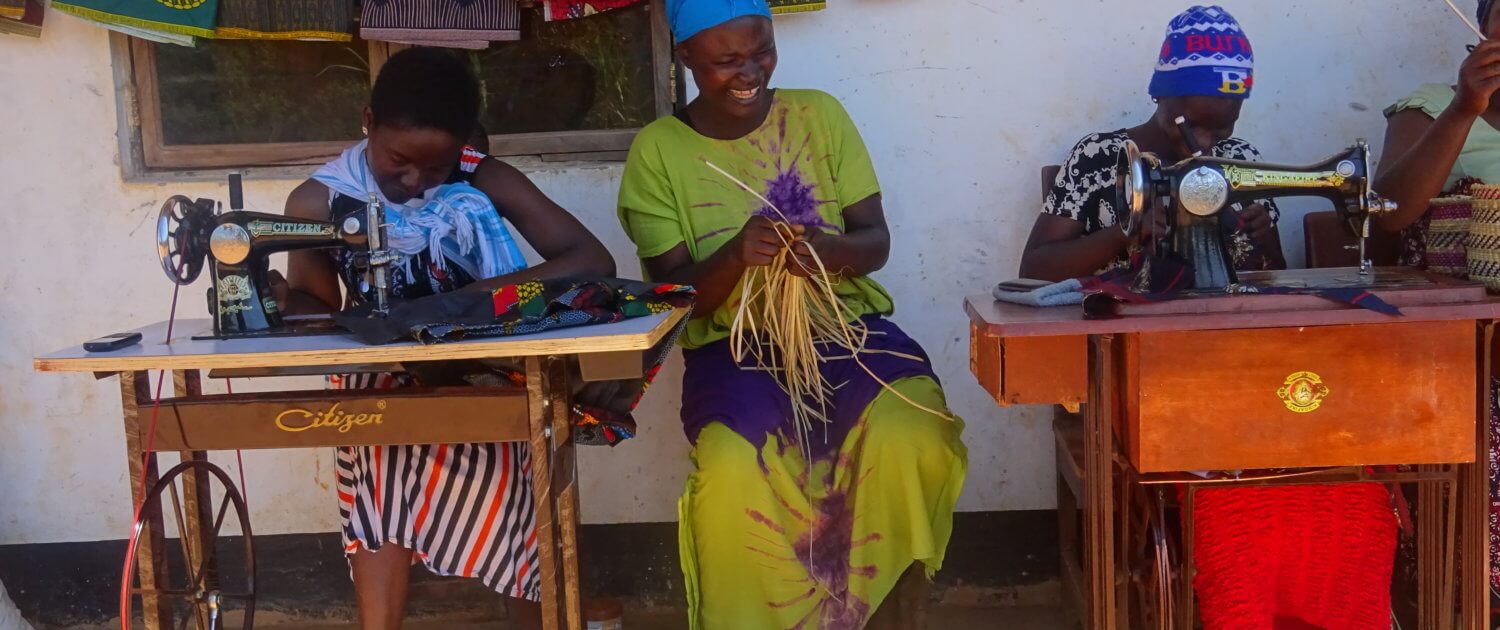
“There is so much I have gained in this group. Nowadays I have no time to waste. I spend most of my time on co-op activities or with co-op members. The benefit I get is sharing ideas, things that I never knew I could share, and learning from other members.”
– Eliza Laban Mgina, Amain co-op member
Hopes and Challenges Propel the Co-op Project
Members are eager to have plots of lands for growing crops and raising livestock, says Co-op Coordinator Debora Joshua. She says the main goal for the co-ops is an extensive market for their products, and to recognize and meet demand as their products gain visibility.
Debora emphasized that the income shared by the women’s co-ops have been used to support vulnerable RCP mothers in emergency circumstances, such as when a C-section birth left a family without ability to pay for needed surgery. “This is an example of how the value of the co-op reaches outside the immediate group to support the entire community,” said Debora. “This all requires a reasonable amount of capital, so one of the skills the co-op women are learning is patience – to wait until they have generated enough from the sale of what they are currently producing in order to invest in larger projects.” But, with time and patience, she says, the co-ops will develop a reputation on a broader, profitable scene.
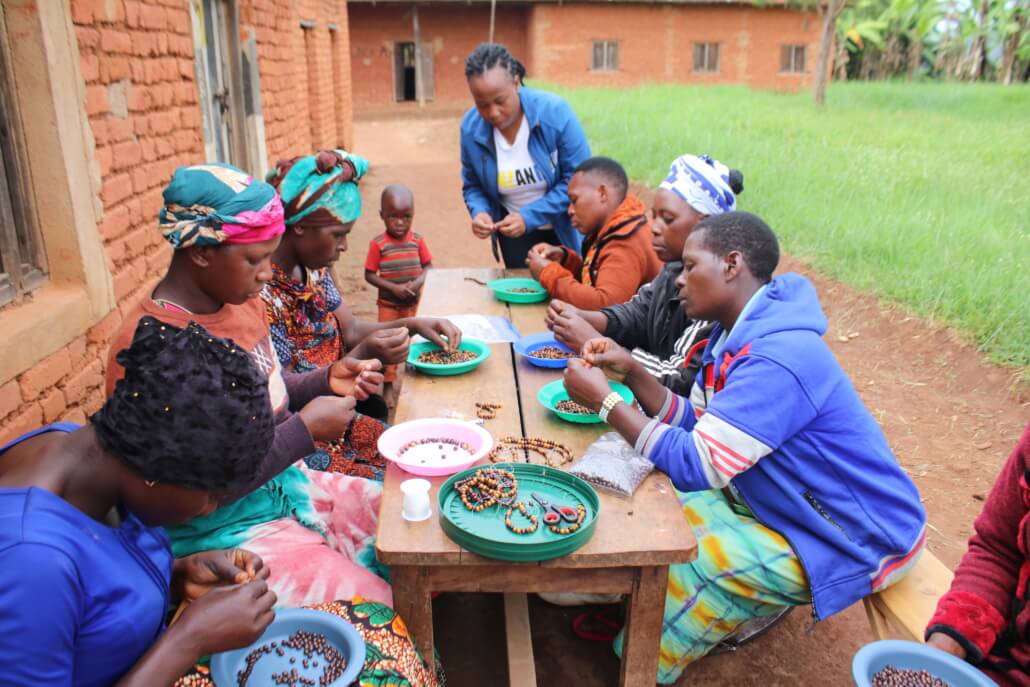
The women’s cooperatives in Tanzania are possible because of donations, and provide a dignified way for women to produce their own income and provide for their families. You can help the women’s cooperatives expand their work and their product portfolio by making a tax-deductible donation to the cooperatives through our Gift Catalog.
You may also like:

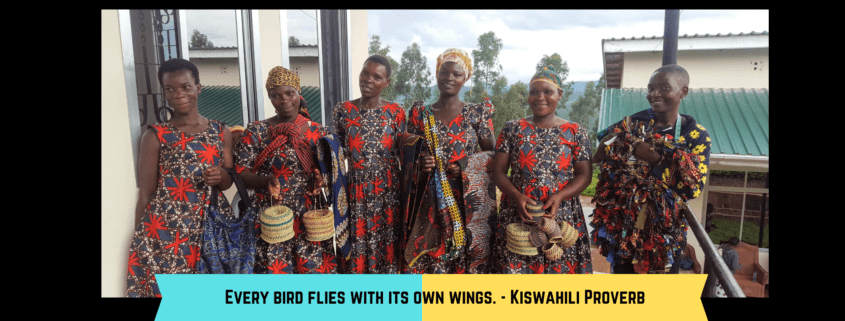


Leave a Reply
Want to join the discussion?Feel free to contribute!